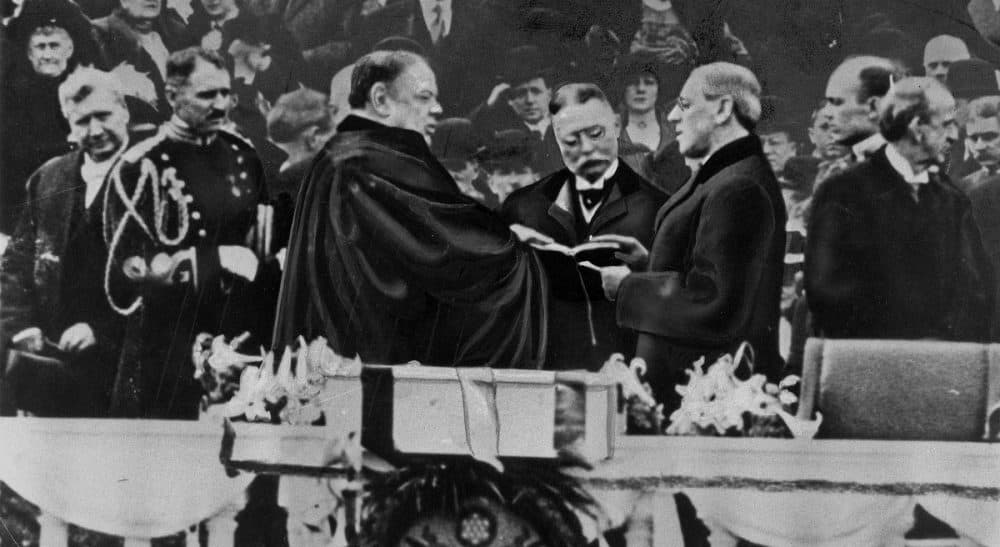Advertisement
Princeton, Woodrow Wilson And The Complex Legacy Of Race In America

Princeton University announced this week that it will not remove Woodrow Wilson's name from its School of Public and International Affairs as well as a residential college that also bears his name. The decision comes in the wake of student calls last November for the university to recognize and disavow the racist and segregationist views of America's 28th president, and to acknowledge the problem of racial inequality on campus, by changing the school and the college's names.
If we remove all public references to racist historical figures but continue to ignore the roots and the<strong> </strong>enormity of racial inequality in America, is that really a victory?
The protests were part of a larger student movement last fall calling for, among other demands, reconsideration of Harvard Law School’s seal, which is based on the family crest of slave owners, and the removal of Thomas Jefferson statues at William and Mary and other colleges, because the Founding Father and third U.S. president also owned slaves.
All of which causes me to wonder: Are we missing the forest for the trees? If we remove all public references to racist historical figures but continue to ignore the roots and the enormity of racial inequality in America, is that really a victory?
So now might be a good time to ask: What, in the end, did the Princeton protests accomplish?
Wilson's name stays, but the university announced initiatives geared to improve diversity on campus and enrich the experience of underrepresented students. Among them, pipeline programs to increase the diversity of doctoral students. School officials also pledged to increase programs that promote education and transparency on diversity issues.
In a statement announcing their decision, Princeton officials noted that “contextualization is imperative.” Officials urged “transparency in recognizing Wilson’s failings and shortcomings as well as the visions and achievements that led to the naming of the school and the college in the first place.”
In asking us to compare the value of Wilson’s work to prevent war against his efforts to block the enrollment of black students, is Princeton posing the right question? Is one individual’s “complex legacy,” as the Princeton statement put it, sufficient context to examine a problem far bigger than any one person?
Instead of looking at Wilson’s record on race in the context of his full resume, we should instead look at it in the context of society at the time. Princeton cautions against forgetting that this racist, segregationist president brought about world peace. I would caution against forgetting that his racist, segregationist views were widely held at the time.
It’s not just that Wilson was racist or that Jefferson before him was. It’s that America was racist. A focus on a few of history's bold face names risks vastly underestimating the scope of the problem. It leads us to think that equality can be achieved by changing a name or a seal.
...we let ourselves off easy by scapegoating dead white men,<strong> </strong>no matter how worthy of our scrutiny their records on race may be.
That’s not to say that challenging the names that adorn these symbols isn’t an important way to start conversations, open minds and implement course-correcting changes that bring about greater equality. The Princeton example demonstrates this. As Princeton president Christopher Eisgruber, whose office was ground zero of the 32-hour student protest last fall, told NPR, the protesters changed the way the school and the country thinks about Wilson.
But we let ourselves off easy by scapegoating dead white men, no matter how worthy of our scrutiny their records on race may be. We need to change the way we think about our history beyond just reevaluating the legacies of historical figures.
If Wilson's name were to be removed at Princeton, would the students, faculty and staff there be closer to racial equality? No. Considering one man's racism in the context of his wider biography is still just considering the tree, and we’re in a forest.
